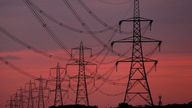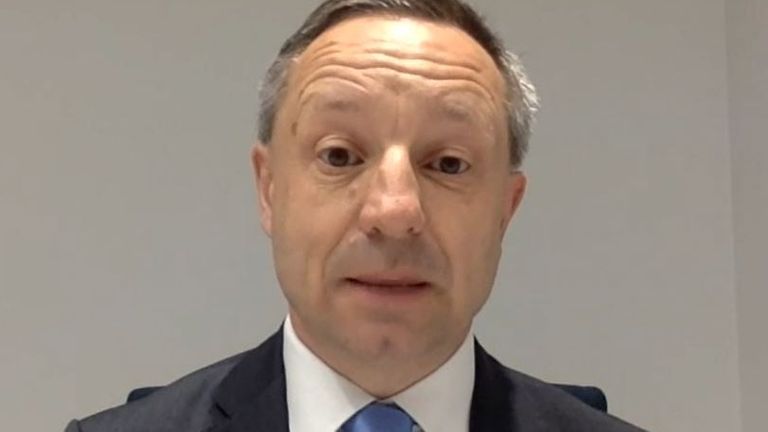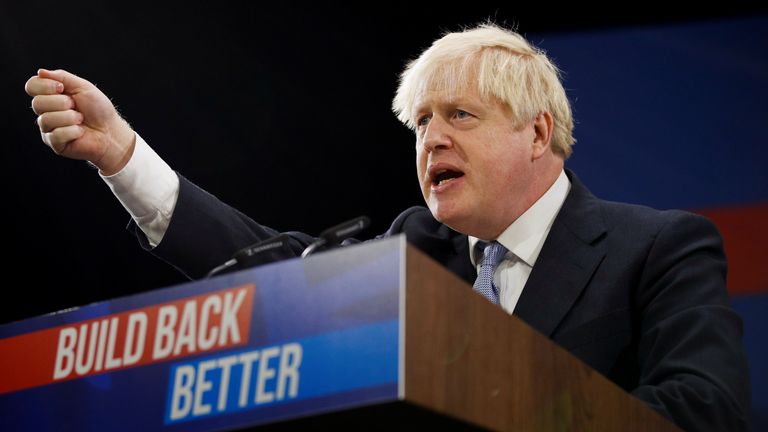Energy and council tax bills could rise by hundreds of pounds from next year
Council tax may need to rise by up to 5% a year for the next three years – the latest in a long list of warnings that the cost of living is expected to increase substantially.
The forecast comes from the Institute for Fiscal Studies (IFS), which said that, under government spending plans, a rise of at least 3.6% on council tax bills will be needed annually to keep services at pre-pandemic levels.
But extra cost pressures and demand are more likely to see bills rise by up to 5% through to 2024/25.
Consumers should also be braced for further volatile gas prices and the potential collapse of more suppliers, analysts at research agency Cornwall Insight said, warning energy bills could rise by 30% next year.
It predicts the energy price cap will rise to around £1,660 by next summer – an increase of almost £400 on the record £1,277 price cap set for winter 2021-2022 which began at the start of this month.
Craig Lowrey, senior consultant at Cornwall Insight, said: “With wholesale gas and electricity prices continuing to reach new records, successive supplier exits during September 2021 and a new level for the default tariff cap… the GB energy market remains on edge for fresh volatility and further consolidation.”
Energy prices surged up by 12% for many households this month as the price cap on default tariffs was adjusted to reflect higher wholesale prices.
Regulator Ofgem reviews the price cap once every six months, and changes it based on the cost that suppliers have to pay for their energy, cost of policies and operating costs, among other things.
It is designed to ensure consumers are not ripped off while at the same time being fair to suppliers who need to buy energy on wholesale markets.
Industry experts have warned that another leap is likely to be imposed from April – when the next review is due to take effect.
Ofgem acknowledged it was a “worrying time for many people”, and added: The energy price cap covers around 15 million households and will ensure that consumers don’t pay more than is absolutely necessary this winter.
“However if global gas prices remain high, then when we update the price cap unfortunately the level would increase.”
Kate Ogden, a research economist at IFS, said: “The coming financial year is likely to be especially tough, with the likelihood of at least some ongoing COVID-19-related pressures, and a particularly tight overall spending envelope pencilled in.”
The IFS also said the government’s social care policies, announced last month, will cost £5bn a year long-term – almost three times the funding that has been allocated over the next three years.
James Jamieson, Local Government Association chairman, said: “The significant financial pressures facing local services cannot be met by council tax income alone.
“Councils are particularly alarmed that the government’s solution for tackling social care’s core existing pressures appears to be solely through the use of council tax and the social care precept.”
A government spokesperson said: “The government has allocated more than £12bn directly to councils since the start of the pandemic – with more than £6bn available to spend as they see fit – recognising that councils are best placed to deal with local issues.
“We have also taken historic action to fix the social care crisis – the health and social care levy will raise £12bn a year to fund the NHS and social care.
“The Spending Review will continue to focus on supporting jobs and delivering the public’s key priorities.”
It comes as:
• The government pressed ahead with its £20-a-week cut to universal credit, despite concerns expressed by charities that hundreds of thousands of people will be plunged into poverty
• National insurance is due to increase by 1.25 percentage points from April in an effort to fund the NHS and social care
• Parts of the country – mainly London and the South East – continue to be gripped by a fuel shortage, due to a lack of HGV drivers. This shortage is also affecting other sectors
• Worker and driver shortages are being blamed for dairy farmers having to waste tens of thousands of litres of milk and hundreds of healthy pigs having to be culled
• Delays and increasing costs in shipping look set to cause goods shortages and price rises ahead of Christmas.





